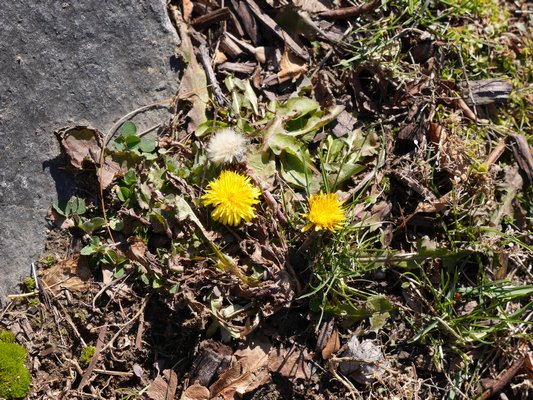
Happy New Year everyone. It’s nearly spring. Well, in my book anyway. Once we get past the winter solstice and the days begin to get longer instead of shorter my garden genes know that spring is less than 90 days away. And by the first of the year nearly half a dozen seed catalogs had arrived, so bring on the cold, the snow and the ice. I’m warm indoors, the fire is roaring and dreams of the gardens of 2015 are beginning to green up.I’d heard last fall that there was change in the wind for one of the East End’s finest garden centers and now I can tell you the news. Jerry and Terry Lynch have sold Lynch’s Garden center to the Fowler family. The sale was finalized at the end of December. The Fowlers have a long history of farming and horticultural enterprises on the East End and it’s my understanding they hope to continue the great work that Jerry has done with the garden center. Jerry will be around for another year to help out as needed during the transition, but has lots and lots of golf on his mind. Terry will continue to run the wholesale part of the business. Most if not all of the staff will remain and that’s great news.
For those of you following the saga of the monarch butterfly, on December 29 the U.S. Fish and Wildlife Service announced that they are launching a scientific review to determine if this butterfly should be put on the endangered species list. Monarch populations have gone from over 1 billion in 1966 to less than 35 million in 2013. The effort was spearheaded by the Xerces Society and several other groups. East Enders need to continue their support of this butterfly by enlarging and creating habitats for them. This primarily means more planting of butterfly weed or Asclepias tuberosa.
Another thing that happened in late December was that I found a forsythia hedge that was 20 percent in flower, and more than a few dandelions flowering. Most gardeners don’t realize that many weeds continue to grow through the winter, with some even blooming and going to seed. It’s a nuisance but also an opportunity. No, it’s not time to get out the 2,4-D and the Roundup, but it is time to get down on your knees or get out your favorite weed-digging device and get some much-needed winter exercise.
Dandelions that set buds during the fall will pop into flower on winter days when the sun is bright and the air temperatures in the upper 30s or higher. You may see only a handful of these in your landscape, but when you consider that each bloom that goes to seed has the potential to produce a hundred or more plants a few months from now, it’s a good idea not to ignore them. On a day when the soil is soft(ish), simply use a long and narrow digging device to get under the plant and yank it, root and all. Then put the weed in the trash. If the ground isn’t cooperative then just remove the flower to prevent seeding, but keep in mind that this is a perennial weed and it won’t just disappear.
The other weed that is easy to control at this time of the year is the invasive garlic mustard. The foliage of this biennial is easy to spot during the winter because it’s set above the leaf litter and may be the only thing that’s obviously green in the garden or landscape now. You’ll see several gray-green leaves from 2 to 4 inches in diameter, somewhat crinkled and sometimes on a thin stalk a few inches out of the ground. Don’t pull the leaves off, but grab the stalk and gently tease it out of the ground. The roots may be a few inches to as much as a foot long. You can leave the plant right where you pulled it, because it will die once removed from Mother Earth. One of the easiest ways to get rid of this weed is with persistent pulling and removal. That means several years of pulling, but if you keep at it you can really get this invasive under control. Pulling has to be done whenever the plant shows up … not just now.
The other weed we see a lot of during the winter is chickweed. This one is more of an annoyance than anything else, as it’s not invasive and can be easily managed. But it’s what we call a winter annual. It grows and flowers during the winter, and if you don’t get it out before it flowers it will return every winter. Removal is by pulling the plants out before they get their tiny white flowers, and the plants can be uprooted easily with a weeding tool or by using the flat side of a steel tine rake and simply scratching them out.
More odds and ends next week as well as the newest scam/invention for your vegetable garden. Start your garden planning. Read your catalogs. Keep growing.